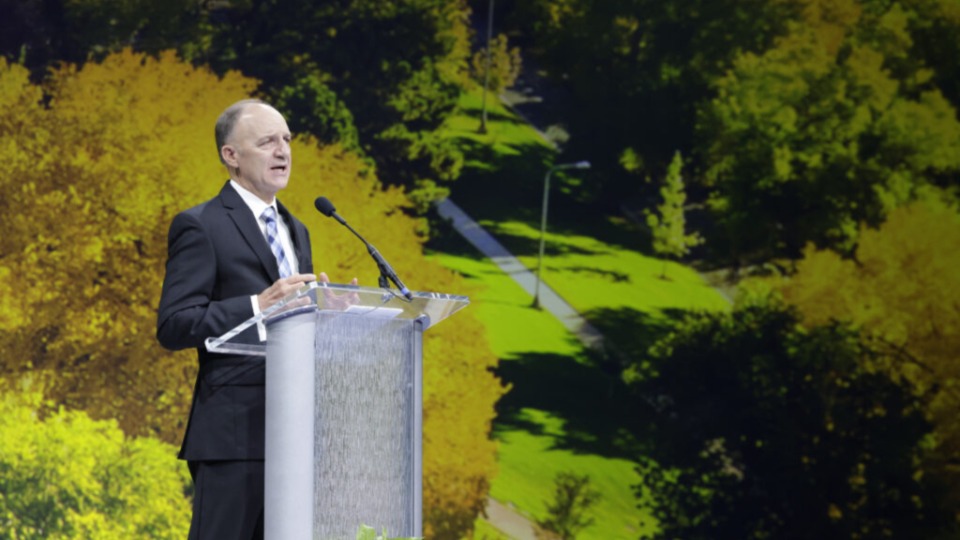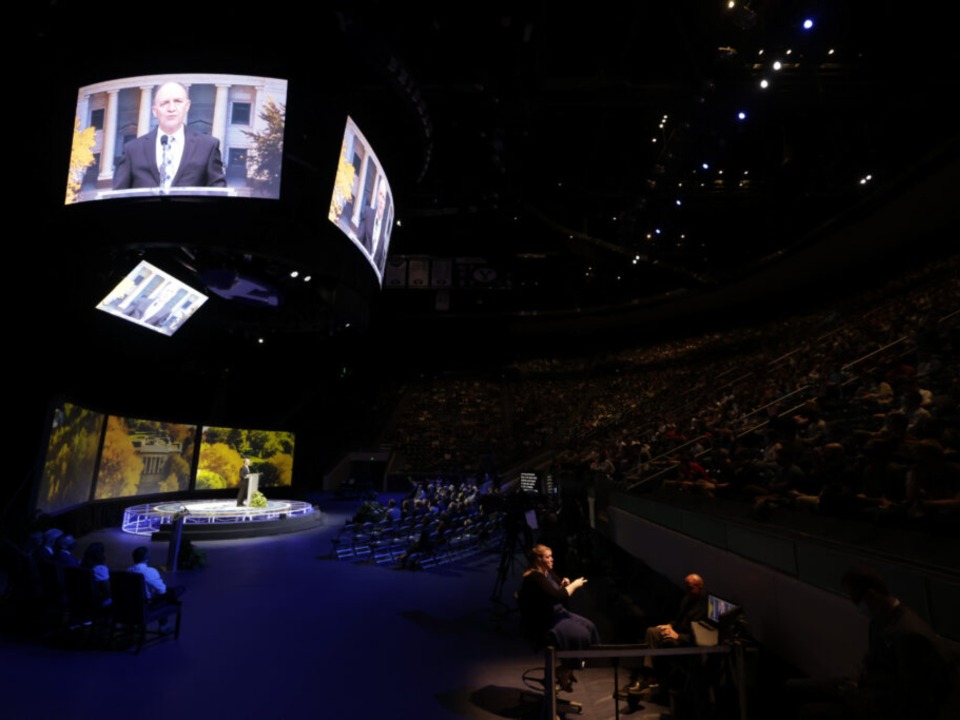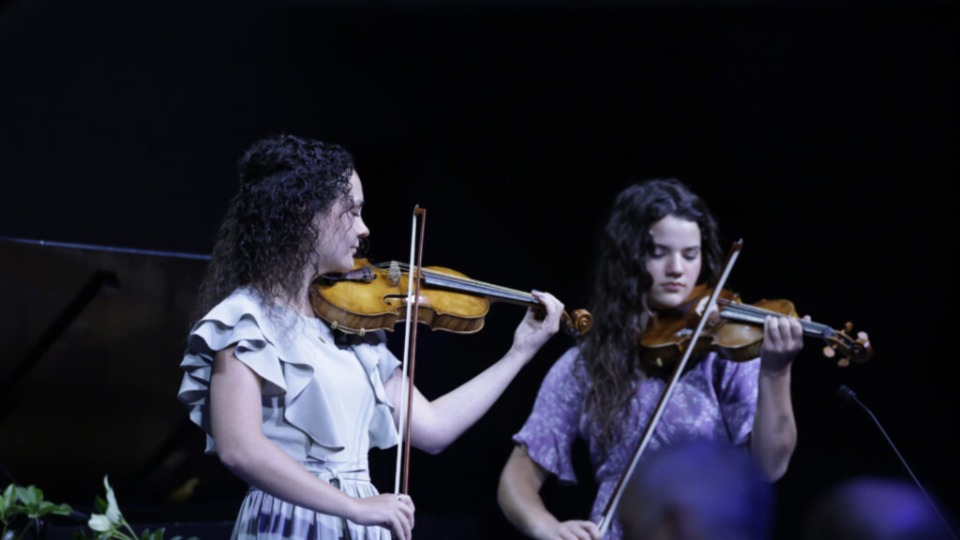
This story appears here courtesy of TheChurchNews.com. It is not for use by other media.
By Sydney Walker, Church News
Brigham Young University (BYU) is a unique institution with an “unparalleled community of academic and spiritual excellence that could only be possible as a result of the Restoration,” said Elder Paul B. Pieper, a General Authority Seventy.
“By choosing Brigham Young University and by virtue of your acceptance, students, professors and administrators agree to become part of a religious academic community united by a common commitment to seek both secular and religious learning by study and also by faith,” he said.
During a campus devotional in the Marriott Center on Tuesday, September 21, Elder Pieper emphasized that a decision to join the BYU community triggers both the responsibility to honor the commitment to sustain its values and purposes and access to the benefits of doing so.
He invited students and faculty to ask themselves, “What can I do to strengthen Brigham Young University?” and identified three ways they can “work as one” to realize the full power and strength of BYU.
1. Work to keep the Holy Ghost present every day in every part of life
One of the most distinguishing characteristics of BYU is its acknowledgment and incorporation of the essential role of the Holy Ghost in the school’s teaching and learning models, Elder Pieper said.
“Consider how much more light and intelligence are available to flow into our hearts, homes and classrooms as students and professors work to have the companionship of the Holy Ghost with them every minute of every day.”
He remembered observing as a student, more than 40 years ago, professors and fellow students teaching and learning with the power of the Spirit. “The topics were secular, but the learning was spiritual,” he said.

“As we work to keep our lives clean by living the principles of the gospel, the Holy Ghost will come to quicken, invigorate, enlarge and expand our minds and intellectual capacities, taking the fullest advantage possible of BYU’s unique learning environment.”
2. Build and show trust for one another and in God
Citing findings from recent surveys, Elder Pieper emphasized that greater trust brings a greater sense of belonging, and greater belonging creates a stronger sense of community. “A stronger community accelerates learning and growth,” he said.
At the start of the semester, BYU President Kevin J Worthen announced the new Office of Belonging to support this effort. “Perhaps more important than the creation of a new office is what each of us can do individually to build greater trust within the BYU community,” Elder Pieper said.
Society has been “sucked into a giant vortex” of trust-destroying conduct, such as selfishness, mocking, imposing one’s will on others and using misinformation to discredit others and promote one’s own position. These tactics, Elder Pieper said, have been used by Satan since before the foundations of the earth.
“Today I implore you not to be sucked into Satan’s trust-destroying tactics just because that’s what the rest of the world is doing, especially against fellow members of the BYU community. Disciples of Jesus Christ use His means to accomplish His ends,” Elder Pieper declared.
Elder Pieper encouraged his listeners to pray daily for members of the BYU community and for Church leaders, particularly those who have responsibility over BYU. “I can promise you that your trust will increase as you do.”
He also encouraged them to “fulfill with exactness” the commitment to live the Honor Code and “trust others as you would have others trust you.”

“If you feel that your trust in others has been too deeply damaged to allow you to trust, then put your trust in your Heavenly Father. … This is His university. You are His child. He knows you better than anyone. Trust Him completely while you continue to build trust in others,” Elder Pieper said.
3. Help each member of the community feel respected
Showing respect is showing trust, and it requires intentionality to develop, Elder Pieper said. “Disrespect separates and divides. Respect unites and strengthens.”
He referenced a statement shared by Sister Sharon Eubank, First Counselor in the Relief Society General Presidency, when quoting her newly called ward Relief Society president: “The thing I … promise … you is that I will keep your name safe. … I will see you for who you are at your best. … I will never say anything about you that is unkind, that is not going to lift you. I ask you to do the same for me because I am terrified, frankly, of letting you down.”
Elder Pieper added, “Respect motivates each member of a community to keep the other members’ names safe, to see each other at our best, to not say anything that will not lift and to be terrified of letting each other down.”
In conclusion, Elder Pieper testified of the prophets, seers and revelators God has called: “I know that President Russell M. Nelson is called of God and is His mouthpiece on the earth today. I am a witness that his counselors and the members of the Twelve are the servants God has called to lead His Church. They are an important part of the BYU community by virtue of their callings.”
Copyright 2021 Deseret News Publishing Company